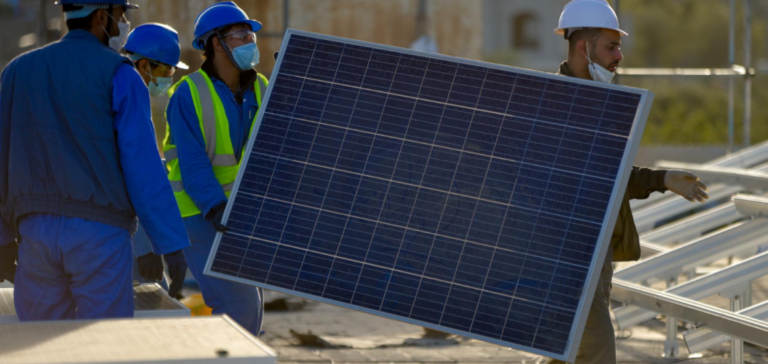2022 marked a milestone in the global energy transition, illustrated by a remarkable shift in favor of clean energies. The International Energy Agency (IEA) pointed out in its recent report that jobs generated by transitional energies, such as photovoltaics, wind power and the electric vehicle sector, have clearly outstripped those generated by fossil fuels. This development comes against a backdrop in which the energy sector as a whole has seen an increase of 3.5 million jobs over pre-pandemic levels, reaching around 67 million workers worldwide.
The Clean Energy Skilled Workforce Challenge
The increase in clean energy jobs has not only consolidated their dominance in the energy sector, but has also highlighted a major challenge: the shortage of skilled labor. A survey conducted by the IEA among 160 energy companies worldwide reveals that this shortage is perceived as an obstacle to the acceleration of activities in this field. In fact, the training of specialized professionals, particularly electricians and experts in science, technology and engineering, is failing to keep pace with growing demand.
Perspectives and Solutions for Bridging the Skills Gap
The IEA’s Executive Director, Fatih Birol, expressed his concern about this gap between supply and demand for skilled labor. In his view, although the transition to clean energy is creating millions of job opportunities worldwide, the shortage of skilled workers is holding back the momentum. This contrasts with the fact that 36% of jobs in the energy sector require high qualifications, compared with 27% in the economy as a whole.
The IEA forecasts that demand for workers in the clean energy sector will continue to grow. As part of its roadmap to net zero emissions by 2050, the agency estimates that every job lost in fossil fuels would be offset by the creation of two jobs in clean energy.
The IEA report highlights the growing importance of clean energies in job creation, while underlining a major challenge: the shortage of skilled workers. To maintain this positive momentum, it is essential to focus on developing skills tailored to the sector’s needs.






















